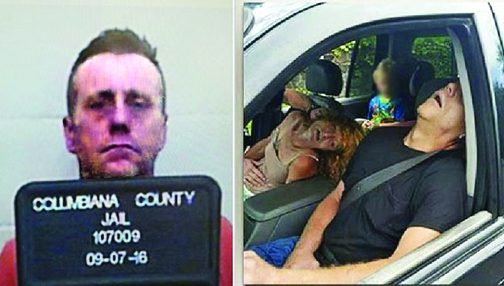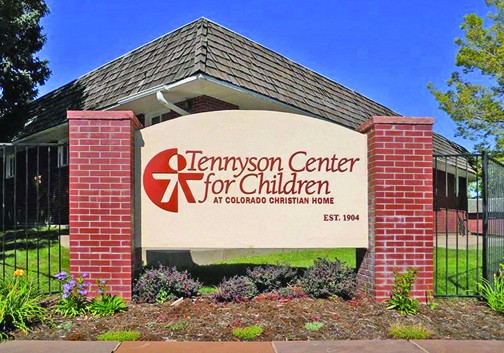by Julie Hayden
 The little boy was just seven years old when he was brought to the Tennyson Center in Denver. It’s a refuge of last resort for children who have been abused, neglected or traumatized. Tennyson Center CEO Ned Breslin says this boy had been removed from the place he and his heroin-addicted mother had been staying. “His mother was bringing men to the apartment who paid her for sex and she then spent the money on heroin, not her son,” Breslin says. The boy was scared, significantly underweight and malnourished. Fortunately, teachers noticed he had “disappeared” from school and contacted authorities that stepped in. Breslin says the tragedy is, this boy’s story is becoming far too common in Colorado.
The little boy was just seven years old when he was brought to the Tennyson Center in Denver. It’s a refuge of last resort for children who have been abused, neglected or traumatized. Tennyson Center CEO Ned Breslin says this boy had been removed from the place he and his heroin-addicted mother had been staying. “His mother was bringing men to the apartment who paid her for sex and she then spent the money on heroin, not her son,” Breslin says. The boy was scared, significantly underweight and malnourished. Fortunately, teachers noticed he had “disappeared” from school and contacted authorities that stepped in. Breslin says the tragedy is, this boy’s story is becoming far too common in Colorado.
Like the rest of the nation, heroin and opioid abuse is skyrocketing in Colorado. Colorado Health Department statistics show 2016 saw a record number of opioid overdose deaths in Colorado — 912 people. That far surpasses the 600 people who died in traffic accidents.
There’s been a lot of talk and task forces focused on adults and the opioid crisis. But Breslin says children are the unseen and forgotten casualties of the opioid crisis. “The kids fall through the cracks.”
The Tennyson Center, founded in 1904, has a mission of empowering children who have experienced abuse, neglect and trauma to bravely and safely change their life’s story. It helps 200-300 local children and families each month. Breslin says, “We’re seeing a real disintegration of families. We’re seeing a real pressure from the opioid and drug epidemic that is ravishing our country and our state.”
The statistics are both staggering and heartbreaking. Breslin notes, “There’s been an 81% increase in the number of kids taken out of their homes over the last two years in Denver alone. And there’s been a 70% increase in abuse and neglect investigations in Denver.” Much of that is fueled by the opioid crisis. Breslin says, “The whole child welfare system is buckling under the pressure.”
Programs like the Tennyson Center are struggling to handle what he calls “the flood” of kids coming into the system. “We are seeing at Tennyson kids being taken from their homes who have been pimped out to pay for their parents’ drug habits. We are seeing kids who are 20-30 pounds underweight because their parents choose drugs over feeding their children. It’s a real problem.”
real problem.”
Tennyson Center, like other similar organizations, is at capacity and searching for ways to fill the growing need. Breslin describes their developing “No Kid Waits” program. “When you have a family and children in crisis it just doesn’t work when you have to tell them you’ll put them on a week-long waiting list. The crisis just gets worse. We have to find ways to get immediate help to these kids.”
The need for help is obvious but how to help is not so clear. Breslin explains it’s difficult enough to work with the kids who have been abused and/or neglected by an opioid addicted parent. But he says you also have to deal with the separation issue. “Mom is going through detox, the legal situation, but at the same time the kids miss her and want to reunite. The path to get kids stabilized and then back with their families is not very clear or easy to navigate.”
“If we can sit back as a society and say what should we really invest in — kids who are in this situation, how can we invest so there are better outcomes. We don’t need more money, we need to move in different ways,” Breslin asserts.
“We just have to realize all the stuff you’re seeing on the surface of the drug abuse and parents in crisis is true and we have to do something about it because we can’t forget the kids.”
